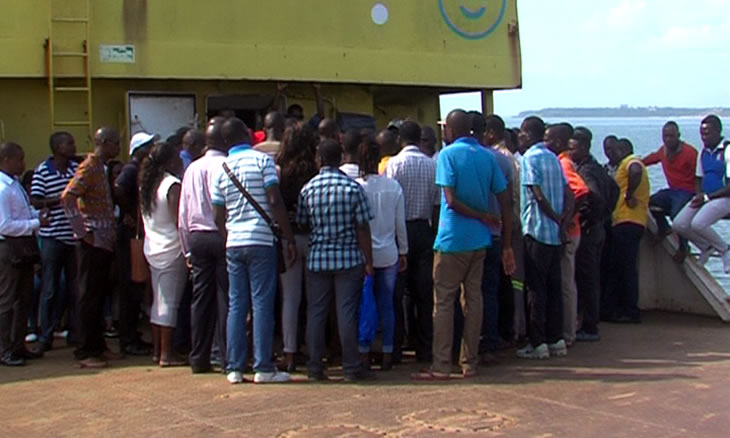Mozambique: Government forecasts 4.6% average annual growth in 2025-29, public debt at 61% of GDP by 2029
Mozambique: Maputo ferry crews on strike over wage arrears – AIM report

O País
The crews of the ferry boats owned by the Mozambican state company Transmaritima, which carry people and vehicles across the Bay of Maputo, went on strike on Monday morning, demanding the payment of four months of wage arrears.
The workers docked the two ferries and protested outside the Maputo quay, insisting that the company must pay them before they return to work.
“They are destroying our families”, one ferry worker told AIM. “We want them to pay our wages. That’s all. And then we will go back to work”.
The Transmaritima workers also went on strike last September. Then they were protesting that they had not been paid the traditional New Year bonus (known as “the thirteenth month”, since it is equivalent to an extra month’s wages), and that the company was not channelling their contributions to the National Social Security Institute (INSS).
They also demanded that the Transmaritima management be dismissed, and this demand also surfaced among Monday’s strikers, although the main complaint now concerns the wage arrears.
One striker, Silverio da Silva, told reporters “The only solution is for them to pay us our wages. Otherwise we will not resume our activities. No negotiation is possible”.
After September’s strike there had been meetings in November with the company management. “But we weren’t successful”, said Silva. “Things just got worse, so that today we haven’t been paid for four months”.
The Transmaritima ferries are the main form of transport for people who work or study in central Maputo, but live in the district of Katembe, on the other side of the bay. With the ferries not crossing the bay, passengers had to look for places on the small private boats which are the only competition Transmaritima faces.
“As you can see, this queue is long. I’m going home to Katembe and this is compromising the activities I have to do there”, a man called Narciso told AIM.
The situation is worse for motorists, since the small boats cannot carry cars or trucks. The only alternative for motorists is to drive to Katembe overland via Boane, which is a detour of about 50 kilometres.
The Transmaritima management was unavailable for comment.
This sort of drama will come to an end once the suspension bridge between Maputo and Katembe, now nearing completion, is opened later this year. That will come as a great relief to everyone who needs to travel across the bay, but will plunge Transmaritima into still greater crisis, since it will no longer have a captive market for its ferries.
Government of Mozambique defends changes in the Labour Law












Leave a Reply
Be the First to Comment!
You must be logged in to post a comment.
You must be logged in to post a comment.